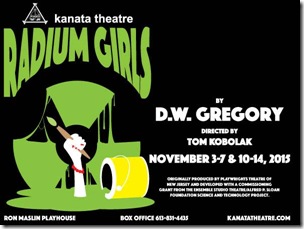Kanata Theatre’s Shatter collapses with a thud
Perhaps the best thing that can be said about Kanata Theatre’s production of a play called Shatter is that it’s well-intentioned.
But that’s not sufficient to give it a pass.
It may have seemed an attractive notion to mark the 100th anniversary of the Halifax explosion with a drama that purports to deal with this tragedy. But the people at Kanata Theatre should have first made sure that the script was worth doing.
Dramatist Trina Davies is clearly seeking to bring a note of intimacy to her story and give us a glimpse of ravaged human lives. But in the process, she devalues the impact on Haligonians (and on Canadians) of the largest man-made explosion in human history until the dropping of the atom bomb on Hiroshima 28 years later. …




